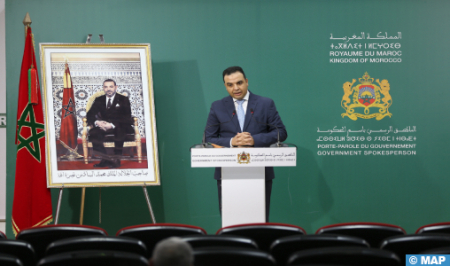This bill aims to alleviate overcrowding in prisons and to enable the beneficiaries of alternative sentences to integrate into society, said Baitas, who was answering questions from journalists at a press briefing held at the end of the weekly meeting of the Government Council, praising the courage and boldness of the Executive in enacting this piece of legislation in a short space of time.
After recalling HM the King’s speech on the occasion of the 56th anniversary of the Revolution of the King and the People in 2009, in which the Sovereign called for the development of alternative dispute resolution methods such as mediation, arbitration and conciliation, and the application of alternative penalties, the Minister stressed that the government was taking this major reform step for the first time, with the aim of introducing these amendments to maintain a balance between human rights and the rights of society.
Alternative sentences are an opportunity offered by the judge as part of his discretionary power, when he considers that the offender can be reintegrated into society, explained Baitas. Thus, the judge implements these alternative penalties (performance of community service, electronic surveillance or restriction of certain rights with the imposition of control, treatment or qualification measures) in the light of a judicial procedure to be followed, until all contentious avenues have been exhausted.
Alternative sentences will only be applied to offenses where the sentence does not exceed 5 years, he said, adding that cases involving terrorism, international trafficking in narcotics and psychotropic drugs, human trafficking, rape, state security, embezzlement, treason, corruption, abuse of influence, misappropriation of public funds, money laundering and sexual exploitation of minors or people with disabilities are not eligible for alternative sentences.
This bill is designed to keep pace with developments in the world of public rights and freedoms, by introducing alternatives to short-term custodial sentences. It also aims to limit the negative effects of such sentences, and to promote the qualification of beneficiaries and their integration into society, with a view to reducing prison overcrowding and rationalizing costs.
This bill includes objective provisions, in line with the general principles contained in the Code of Criminal Procedure, as well as other formal provisions relating to the execution of sentences, in accordance with the rules of criminal procedure. It provides for a series of alternative penalties adopted after taking into account several comparative experiences, while taking into consideration the specific features of Moroccan society, so that they are effective and applicable and can achieve the desired objective.
It excludes alternative sentences for serious crimes and repeat offenders.










